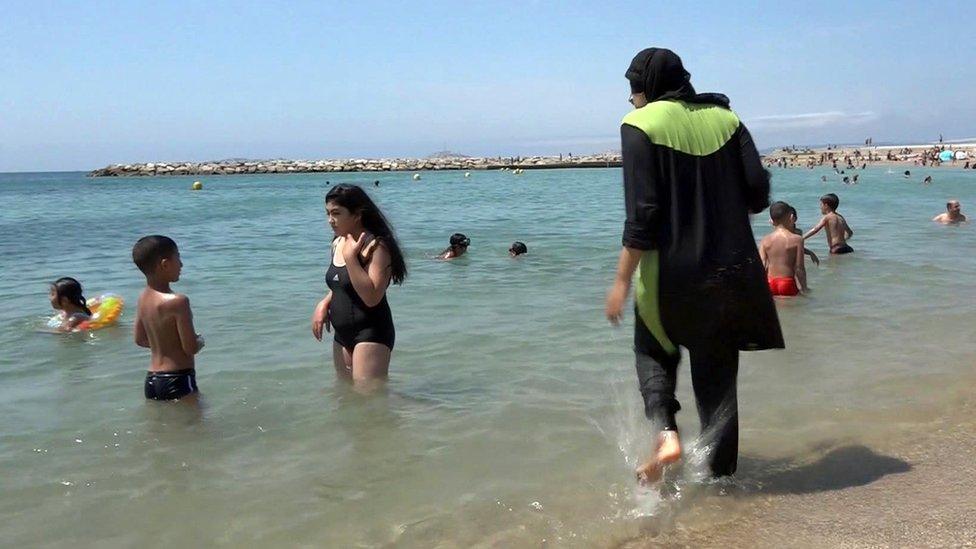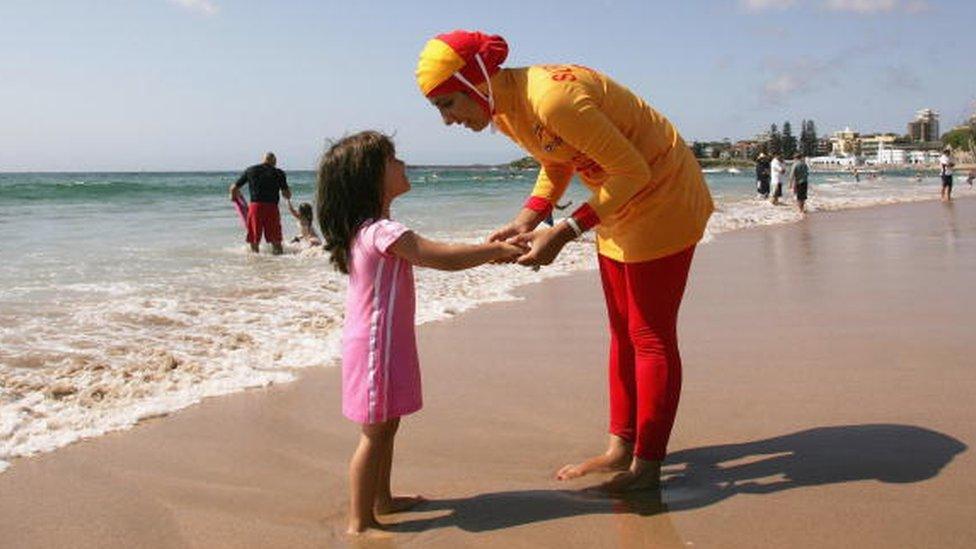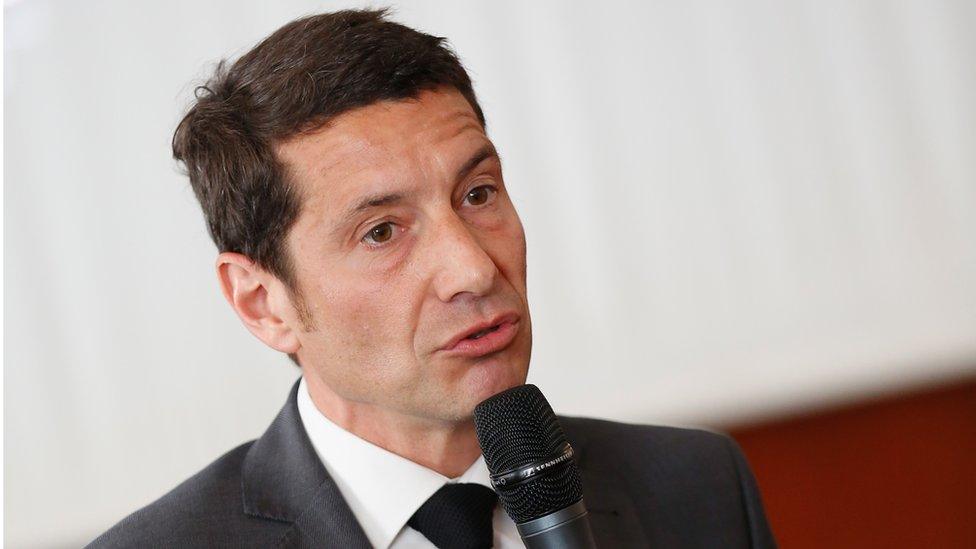Why do some people find the burkini offensive?
- Published

As the row over the ban on burkinis - full-body swimsuits - on some French beaches continues, the BBC's Pakistan correspondent asks why some people find the garment so offensive.
This summer my husband and I spent some time in Spain.
The day we arrived, a really good friend took us to the beach.
She's a hijabi but as a fellow lover of the sea, she wouldn't let that get in the way.
And why should it?
Her children and I changed into our swimsuits, and she into her burkini, which was basically a surfing wet suit.
She covered her hair and off we went. We swam, raced, dived and laughed our hearts out.
Then we came out to dry up.
There were people all around us lying on the sand - sunbathing in their bikinis, tankini one-piece suits and some chose to take their tops off completely.
But guess who got the most looks on the beach that day?
Yes, my friend in the burkini.
Some looks were inquisitive; others were just unfriendly.
Fortunately, she's strong and confident and brushed it all off with a laugh.
We were out having fun. And the burkini meant that my friend and I could go swimming together.

'Burkinis' have been worn by lifeguards in Australia
That was it. She wasn't making a political or religious statement.
She wanted to swim and she did.
But somehow being a covered woman on the beach for religious reasons still grants you negative attention and not just in Western countries.
The burkini has been in my life for years, except that it wasn't called a burkini when I was growing up in Egypt.
I was born in the Mediterranean city of Alexandria.
I remember fun summer days on the beach either in my hometown or somewhere on the north coast of Egypt long before it became trendy, exclusive and ridiculously expensive.
For a while, it would be me my father, my uncles and my cousins swimming.
My mother and aunties, all of whom wore the hijab or head cover, would never swim.
Until one time they did.
They'd all put on what looked to me like gym clothes with long T-shirts and head covers.
It didn't matter - what mattered to us was that they joined us in the water.
But it wasn't really that simple.
What I hadn't realised as a child was that they only did that when we were on a fairly empty beach.

Cannes Mayor David Lisnard's ban on the "burkini" comes at a time of heightened security in France
I also hadn't realised at the time that there was a class divide between women who went to swim "in their clothes", as a friend described it to me, and others who wore bathing suits.
Somehow, being a hijabi on the beach put you in a lower class.
You weren't as open-minded - you were part of the Saudi-isation or Islamisation of Egypt.
But the number of women who wore the hijab grew all over the world.
I'd seen endless variations of the burkini before it actually had a name. I wore the hijab for 10 years before I took it off two years ago.
I certainly tried one or two of those variations before I bought my first burkini.
Someone had finally clocked the gap in the market.
I remember covering a story about halal holidays in Turkey. I followed a British Muslim family as they enjoyed the sun and sea, and how the mother wearing her burkini had, for the first time, enjoyed swimming with her children.
"We can't do that back in the UK," she told me. "I wouldn't feel comfortable. I'd stand out," she said.
So this summer, apart from the looks and the general feeling of awkwardness that women in burkinis feel, the Mayor of Cannes David Lisnard took it up a notch.
He banned the thing altogether.
He said: "Beachwear which displays religious affiliation is liable to create risks of disrupting public order."
A strong statement for a garment with some extra bits of Lycra, I thought.

Burkinis were banned in Corsica after tensions over a brawl
What kind of risks to public order would my friend pose if she decided to swim in Cannes?
What risk to public order did she pose when she went swimming in Spain?
I kept thinking.
Why would sitting next to someone in a burkini be more offensive than sitting next to someone in a bikini?
No one has come up with a convincing answer yet.
But living your life while female-covered-and-Muslim has yet again become a political issue - an issue of public order, which has eventually become a cause of public disorder.
It was reported that when young men in Corsica decided to take photos of women in burkinis, violence erupted.
I don't know how beachgoers in the French Riviera see the burkini.
They may see it as a form of oppression.
It may disturb the vast canvas of sun-kissed skin around them.
But to me, as someone who wore it for years, it has always meant that I could swim, and in that was a freedom that I still remember and am still grateful for.
You can hear Shaimaa Khalil's report on The World This Week on BBC World Service. The programme is also available as a podcast.